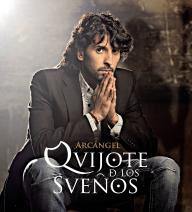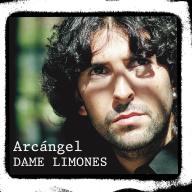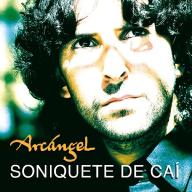He has born Francisco José Arcangel Ramos in Huelva in 1977, he won his first singing contest at ten and, after performing as a "Cantator de Atras" for dancers Javier Baron and Eva Yerbabuena, guitarist Vicente Amigo, and percussionist Manuel Soler, he recorded his self-titled debut album in 2001. Following 2004's La Calle Perdia and 2006's Ropavieja, he appeared in Zambra 5.1, a stage show tribute to legendary flamenco star Manolo Caracol, before returning to the studio in 2011 for his fourth effort, Quijote de los Sueños. Its reception was curious. Though it sold exceptionally well, some critics had a difficult time embracing the evolutionary approach he was presenting with these works, utilizing piano and percussion alongside guitars, dance steps, and palmas without resorting to cultural fusion. 2015's Tablao featured collaborations with artists such as Dani de Morón, Miguel Ángel Cortés, and Diego del Morao on guitars, while Isidro Sanlúcar wrote the lyrics and co-produced the album with Arcángel. The recording underscored the singer's commitment to flamenco itself. Recorded in three emblematic tablaos of Madrid, Barcelona, and Seville, the album is a vindication of these spaces as fundamental to the history and development of flamenco. 2018's Al Este del Cante was a collaboration with the choir Coro de Nuevas Voces Búlgaras ("the New Voices of Bulgaria") under the direction of Bulgarian arranger and conductor Georgi Petkov. Once more confounding critics with his mercurial approach to the evolution of flamenco, the album resonated with listeners, though critics had a much more difficult time embracing it. For his part, Arcángel responded in an interview claiming that "...we must transgress with respect...I have one foot in the past and another in the future." The collective tour that followed sold out virtually every date. ~ Jon O'Brien, Rovi
Arcángel
from Huelva, Andalusia, Spain
March 25, 1977 (age 48)
Biography
Through his passionate delivery, enviable command of the repertoire, and resolve to embrace modernity, award-winning flamenco singer Arcángel (given name: Francisco José Arcángel Ramos) has earned a reputation as one of the most respected, innovative cantaores of the 21st century. While his forceful singing is his most tangible trademark, he is also celebrated for composing original works, as well as provocative re-arrangements of flamenco's canonical texts. His 2001 self-titled debut (on which he worked with prestigious veteran guitarist and producer Juan Carlos Romero) won the Andalucía Joven Award and the Premio Nacional Flamenco Activo de Úbeda. While touring, he earned his first winning placement (of several) at the Palenque, en la Bienal de Flamenco de Sevilla de 2002, and received the El Premio Giraldillo as best cantaor. On 2011's Quijote de los Sueños, he composed songs for the poems of Juan Cobos Wilkins, wrinkling critical eyebrows for his non-conventional approach that embraced classical and folk traditions as a part of the lineage of flamenco. 2015's Tablao was recorded in three emblematic musical portraits of the cities of Madrid, Barcelona, and Seville, all fundamental in the history and development of flamenco. The live performances that followed won attention across Europe, due to his command of the material and a punk attitude that sought to erase boundaries between artist and audience.
Top Tracks
Albums
Videos
Close














